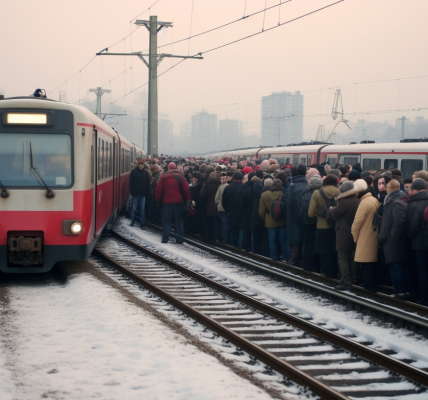In a remarkable display of solidarity and determination, flight attendants from various airlines have come together to stage protests at airports around the world. Their unified demand is for better pay and improved working conditions, a plea that resonates with many in today’s labor force. This movement marks a significant moment in the aviation industry, highlighting the growing concerns over employee welfare and the lengths to which workers are willing to go to have their voices heard.
The Global Stage of Protest
Flight attendants, the frontline staff of the aviation industry, are often celebrated for their professionalism and grace under pressure. However, beneath the surface of their calm demeanor lies a growing unrest over issues of pay disparity, long hours, and the lack of adequate rest between flights. These concerns have culminated in a series of coordinated protests at over 30 airports worldwide, signaling a new era of labor activism within the aviation sector.
The Heart of the Matter
At the core of the protests is a call for fair compensation. Flight attendants argue that their wages have not kept pace with the rising cost of living, nor do they reflect the level of responsibility and skill their roles demand. Moreover, the unpredictable nature of their schedules, coupled with the physical and emotional toll of the job, underscores their demand for better working conditions.
A Ripple Effect
The impact of these protests extends beyond the immediate concerns of the flight attendants. They highlight a broader issue facing many workers today: the struggle for fair labor practices in a globalized economy. As airlines operate in an increasingly competitive market, the pressure to cut costs often falls on the workforce, leading to a cycle of discontent and unrest.
Looking Ahead
The flight attendants’ protests serve as a catalyst for change, not just within the aviation industry but across the global labor market. Their actions underscore the importance of dialogue between employers and employees and the need for policies that ensure fair wages and humane working conditions. As the world watches, the outcome of this movement could set a precedent for labor relations in other sectors.
FAQ
Q: Why are flight attendants protesting?
A: Flight attendants are protesting for better pay and improved working conditions, including more reasonable schedules and adequate rest between flights.
Q: How widespread are the protests?
A: The protests are taking place at over 30 airports worldwide, indicating a global movement within the aviation industry.
Q: What do the flight attendants hope to achieve?
A: They aim to secure fair compensation that reflects their responsibilities and the demands of their job, as well as to improve overall working conditions.
Q: How does this movement affect the aviation industry?
A: The protests highlight the need for the aviation industry to address labor concerns seriously, potentially leading to changes in how airlines operate and treat their employees.
Glossary
– Labor Activism: The efforts and movements aimed at improving workers’ rights and conditions.
– Pay Disparity: The difference in wages between different groups of workers, often based on job role, experience, or gender.
– Globalized Economy: An interconnected economy where goods, services, and labor move freely across borders, often leading to increased competition.
– Dialogue: Open communication between two parties, in this context, between employers and employees, aimed at resolving disputes.




